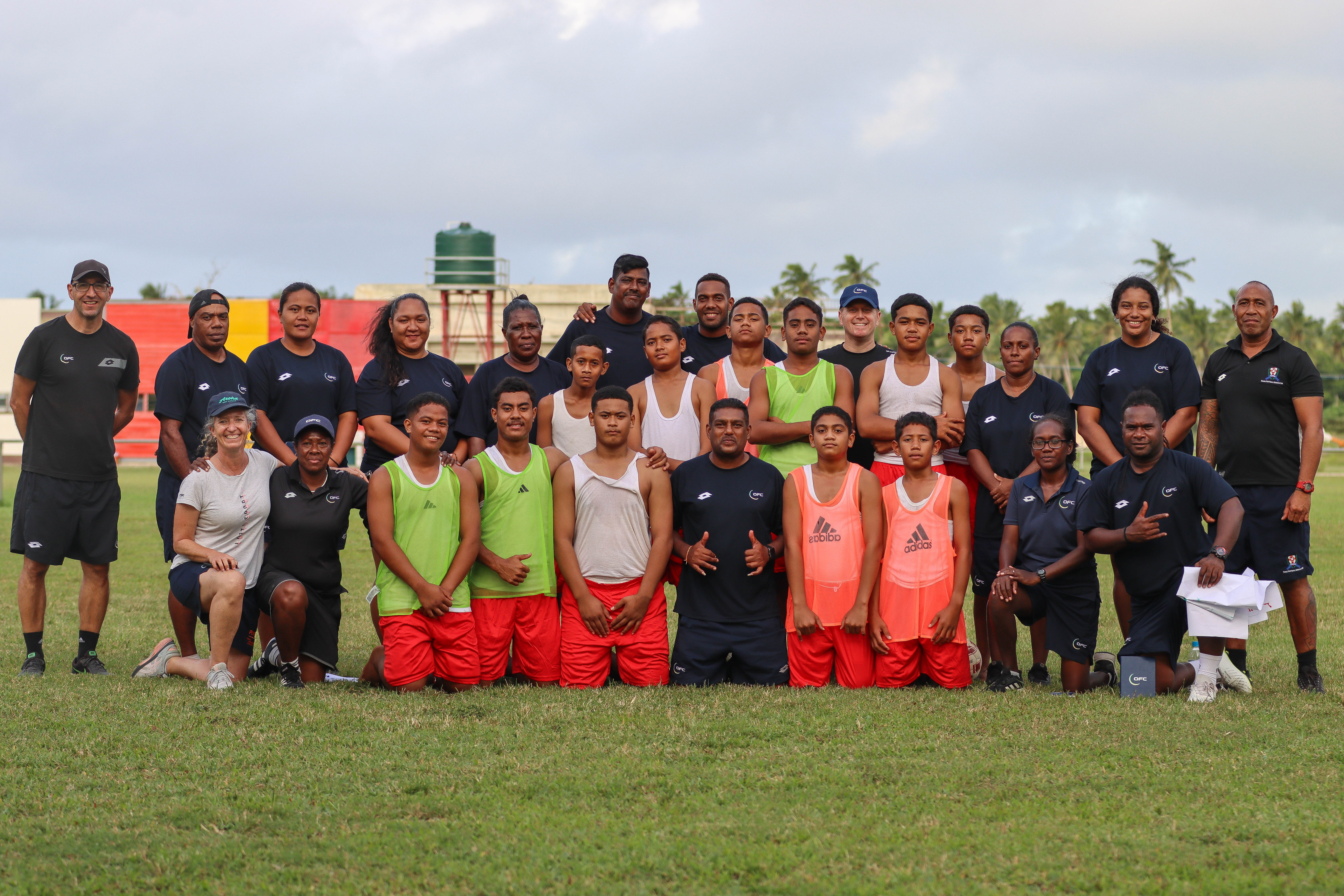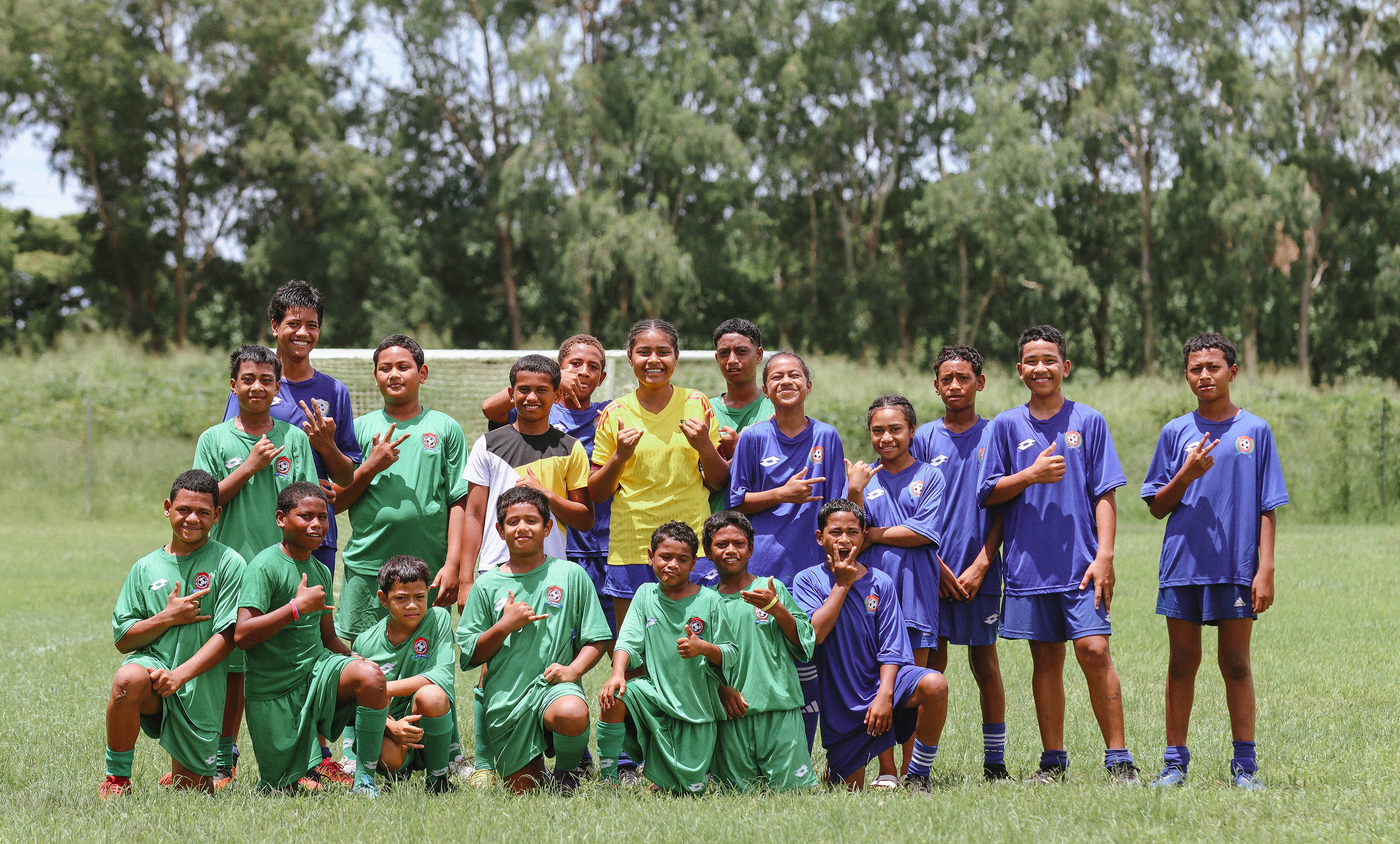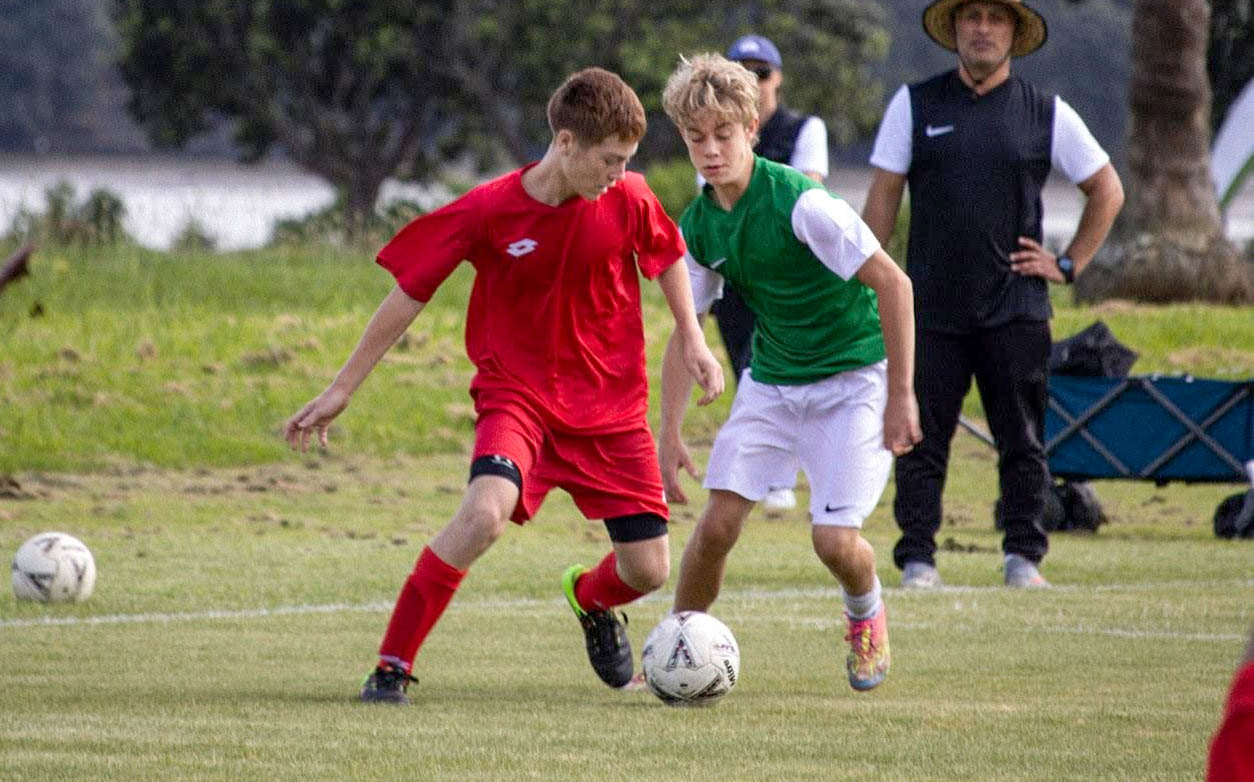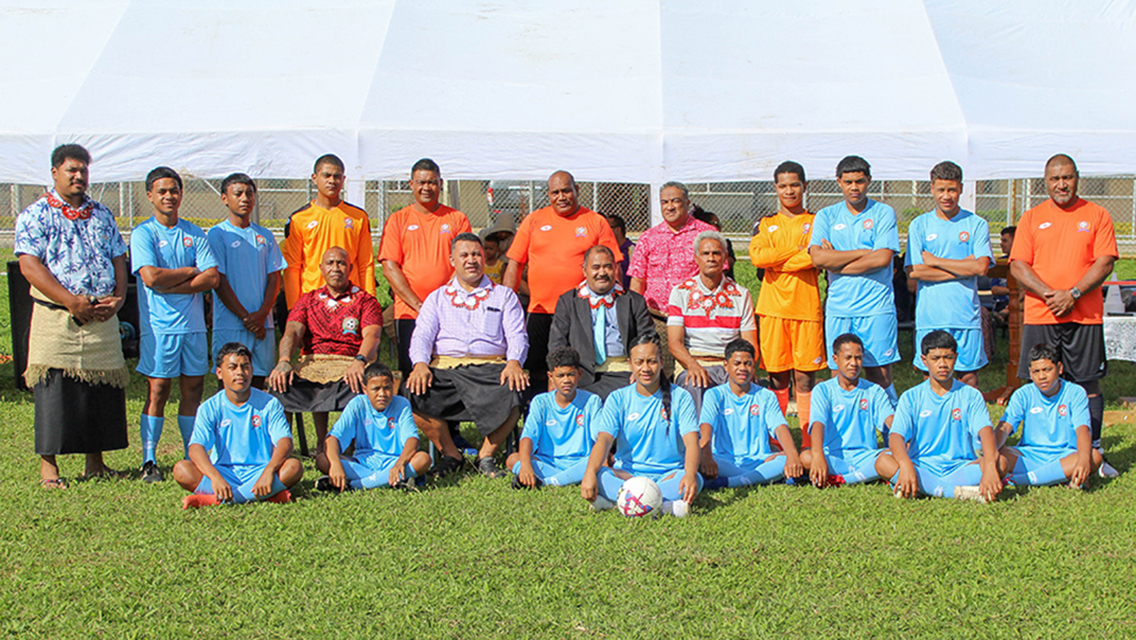In a milestone event for football development in the Pacific region, Tonga recently hosted their first OFC Coach Educator Certificate Course at the Loto-Tonga Soccer Center. The four-day intensive program brought together 11 coaches from six countries, including Tonga, with the shared goal of enhancing their capacity to deliver high-quality coaching education within their respective Member Associations (MAs).
Facilitated by experienced Coach Educators and OFC Consultants Andy Hedge and Margaret Aka, in collaboration with OFC High Performance and Education team members Tracy Cunnington and Owain Prosser, the course combined theoretical knowledge with practical sessions. The participants engaged in rigorous training aimed at equipping them with the skills and expertise necessary to elevate coaching standards across the region.
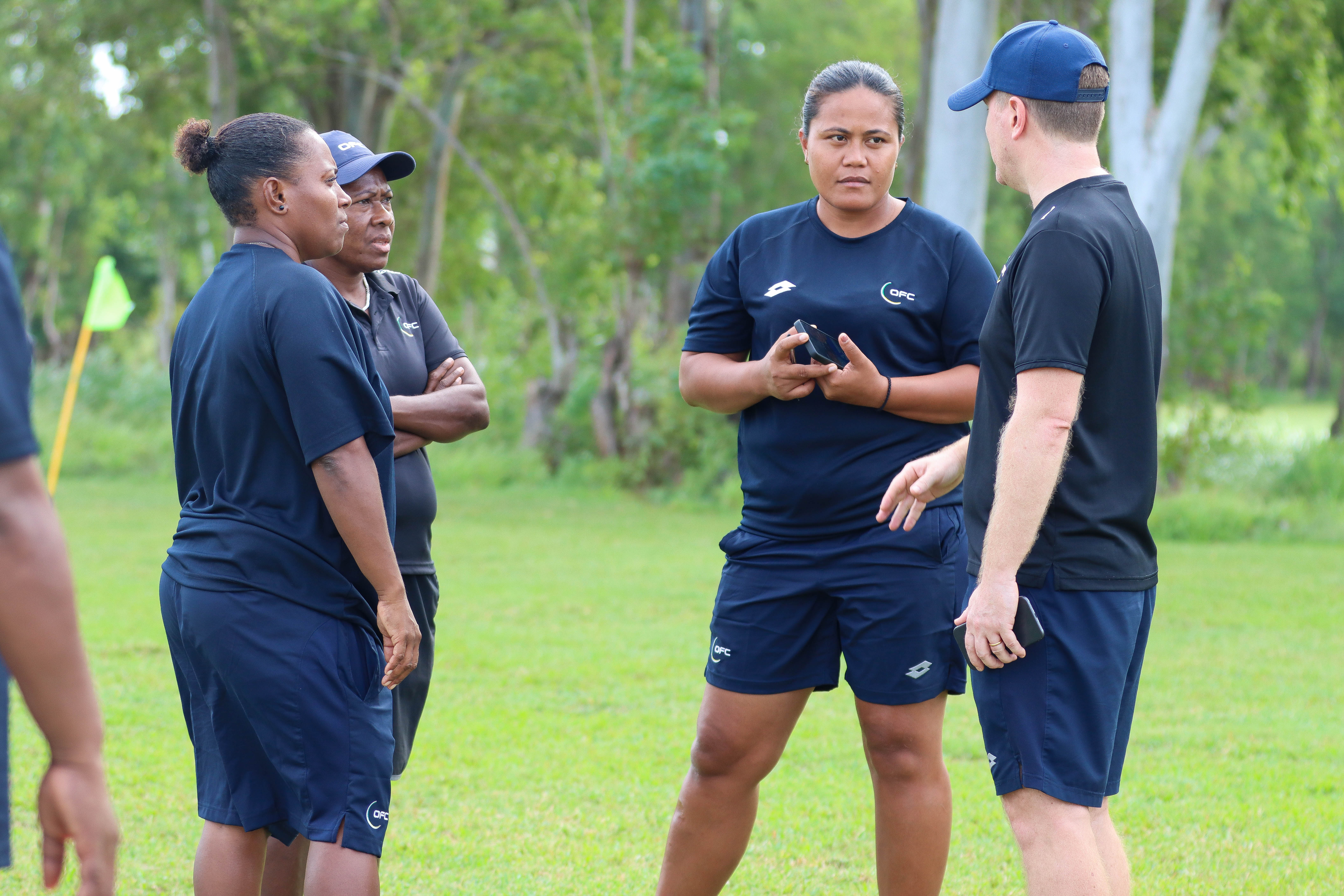
Reflecting on the significance of the course, Owain Prosser emphasized its crucial role in football development. He stated, “We are here to support the people that are delivering coaching courses within their Member Associations and try to build their capacity also try to increase the amount of people that are delivering the courses and their ability to deliver those courses so hopefully if get better coach educators, we have better coaches so therefore in terms we have better players.”
Prosser also highlighted the commitment and enthusiasm demonstrated by the participants, underscoring their dedication to advancing football education in their communities. He added, “The response of the coaches to the Coach Educator Course has been fantastic so far, the level of commitment has been excellent and their application and everything that we’ve been asking them to do whether it will be in the classroom or out on the pitch has been fantastic.”
For Tonga, hosting this landmark coaching course holds particular importance. Kilifi Uele, TFA Chief of Football, expressed pride in Tonga’s role as the host nation and emphasized the course’s broader impact on local football development. Uele stated, “I guess we all know the importance of this course is to train coach instructors or educators to be able to train our local coaches and we are lucky to have one participant on this course, Mausia Patolo.”
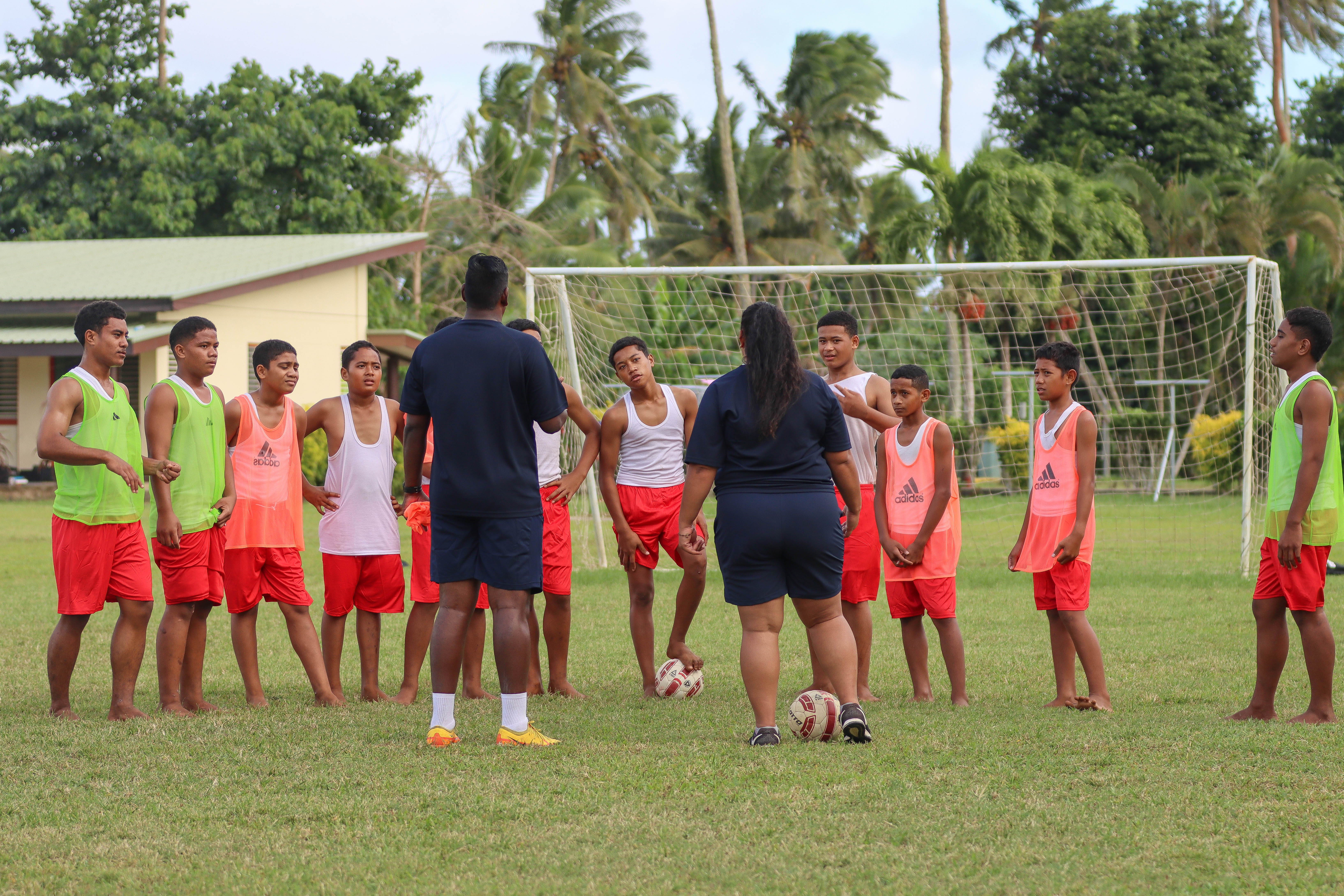
Notably, Tonga’s own Tangimausia Patolo participated in the program, marking a significant step towards gender diversity in coaching education within the region. Uele highlighted the potential impact of Patolo’s involvement, stating, “With her attending as a member of our Technical Departments now she can run coaching course for not only our National Coaches but for Club Coaches and also the coaches that wishes to join the course because at the end of the day with that being completed we’ll be able to have better coaches and therefore we’ll have better players for our National teams.”
The inclusion of six female participants underscores the commitment to promoting gender equality in football, aligning with OFC’s Women’s Football Strategy – ALL IN. By empowering female coaches and educators, the aim is to foster an inclusive environment where women play a significant role in shaping the future of football.
One of the key outcomes of the course is the ability of the qualified coaches to educate and develop future generations of coaches. This cascading effect is essential for sustaining long-term growth and ensuring a pipeline of skilled coaches across the Pacific region. Tangimausia Patolo’s participation, for instance, positions her to impart her newfound knowledge and expertise to both national and club-level coaches in Tonga, thereby contributing to the overall improvement of football standards in the country.
End.

